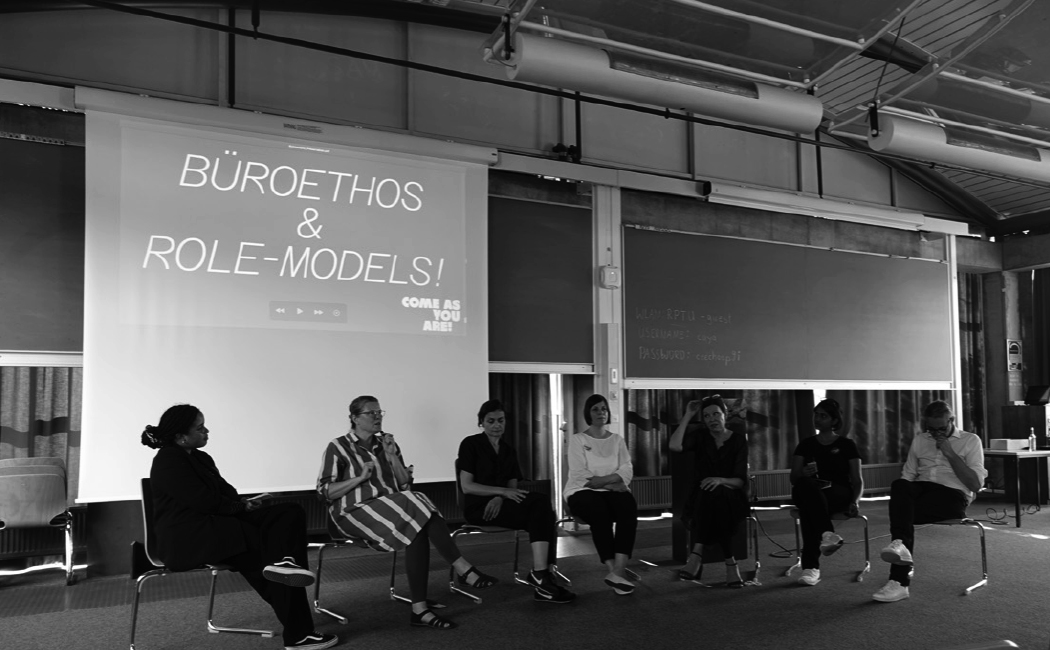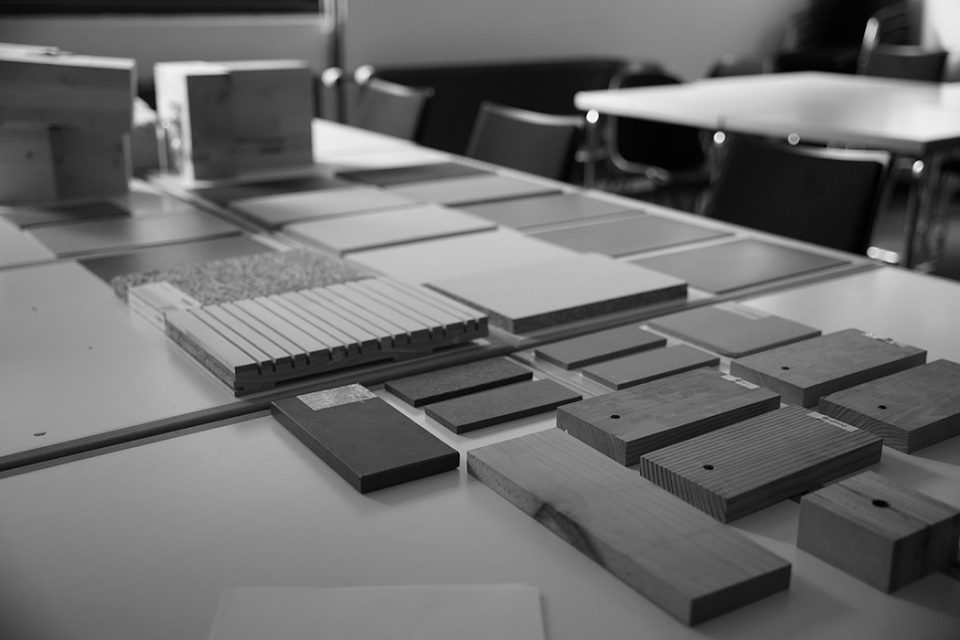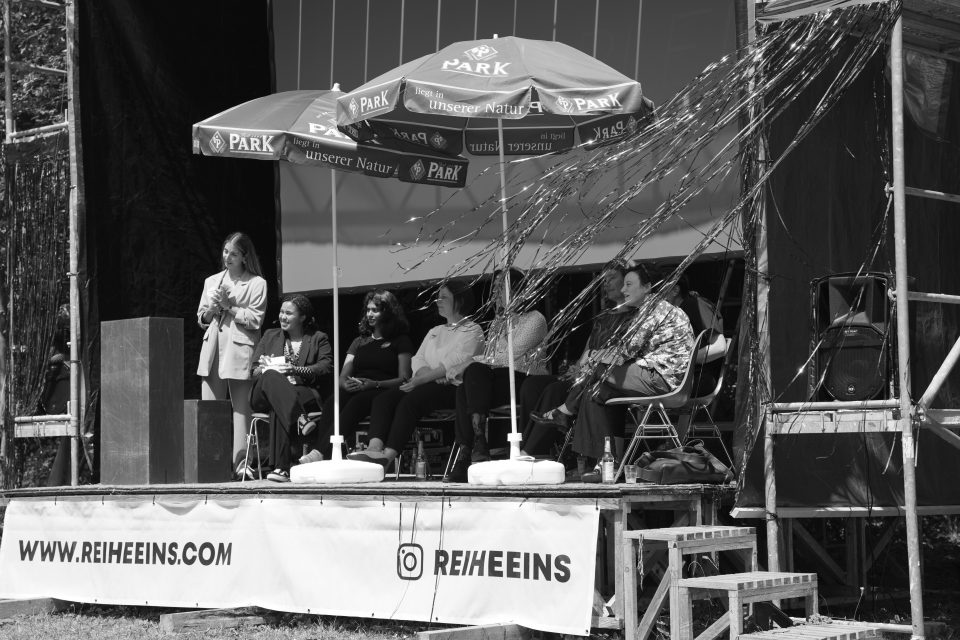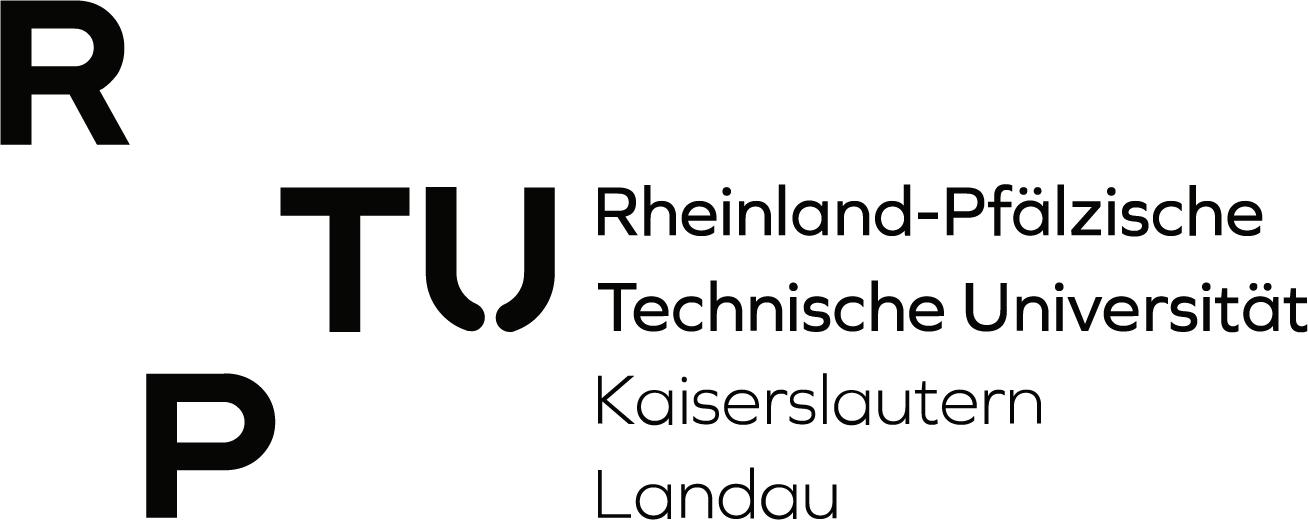
un/doing gender
Position
In accordance with its guiding principles, the RPTU commits to the encouragement of gender equality, diversity and equal opportunities. Its wide range of engineering, science, humanities and social-science disciplines creates a field of tension between “Engineering, Society and the Environment”, forming a key focus of the university’s research. Study on the intersections between these fields enhances targeted innovation and new insight.
The RPTU has declared its aim of increasing the proportion of women* in leadership positions and in professional fields where they are under-represented. The representation of women* in leadership roles, especially professorships, is thereby regarded as a precondition for equal opportunities, since they act as role models to empower young women* at the university. A gender-sensitive approach to research also takes into account aspects of gender stereotypes and (in)equality, not only in the research itself, but also with respect to the transfer of research results into practice.
Pursuing gender issues in Architecture, motivating women* to present their visions, interweaving the university with the city and region, filling as yet unoccupied fields with content, empowering young architects and developing career prospects are all aspects of the Endowed Chair that is supported both by the umbrella institution of the RPTU and specifically by the Faculty of Architecture.
RPTU Equality, Diversity & Family Affairs Unit

COME AS YOU ARE! Symposium 2023: Melissa Günther/CAYA RPTU, Wiebke Ahues HENNING/LARSEN, Sorana Râdulescu/ BAUNETZ, Nataliya Sukhova/ TRANSSTRUKTURA, Prof. Oda Pälmke/ RAUMGESTALT UND ENTWERFEN RPTU, Sahana Doravari/CAYA RPTU, Prof. Dirk Bayer/ DEAN RPTU
Statement
Definition: UN/DOING GENDER is a sociological concept developed as a counterpart to the analytical approach of Doing Gender. UN/DOING GENDER calls for the inclusion of forms of interaction that help break down stereotypes.
- The RPTU would achieve a unique content-based selling point. It would be the first and only university in Germany with a gender focus in Architecture.
- Founding an intellectual “school”. Its core is formed by the inclusive, inviting perspective on gender-sensitive architecture, from intellectual access to technical implementation.
- The RPTU would thereby generate international attention/attraction. For researchers and students, the FATUK offers opportunities that are under-represented both in Europe and worldwide.
- Achieving regional sustainability. We can attract talented people who can find an intellectual and regionally-related home within a newly emerging cluster.
- Broadening the perspective of Architecture. With our multi-, trans- and interdisciplinary approach, we position Architecture across other disciplines: including social sciences, research on sustainability, and urban and regional planning, as well as other related disciplines such as mobility research, logistics and humanities.
- Uncovering a blind spot of digitisation. We can research, negotiate and reveal the potential effects of digitisation on UN/DOING GENDER in architecture: from stabilising heteronormative role models to the gender bias of AI.
- Changing architectural discourse. Our research, designs and debates change architectural dialogue. We work towards a new normal – with a gender-sensitive focus as the starting point of forward-looking architecture.
- Our graduates produce better architecture. We encourage the foundation of new practices and the development of confident, autonomous positions.
- Raising awareness of ESG-relevance. By 2030, businesses and architectural practices will be required to prove that they have integrated this EU standard into their compliance framework as standard.

Pop-Up-Material Library, Workshop “Changing our Footprint” as part of COME AS YOU ARE! with Wiebke Ahues, Women Architect, HLA Berlin
Why does diversity in architecture matter?
A critical approach to the gender debate in Architecture, new working methods and structures, both in practice and teaching, as well as reflection based on such research, practice and teaching, are important curricular elements of Architecture studies. The benefit of integrating the gender perspective more strongly in this context is self-evident, since it is a dynamic, internationally forward-looking research field, offering potential to all academic disciplines with respect to further methodological and thematic development.
The complex spatial and urban-planning consequences of climate change, demographics and sociocultural transformation demand a paradigm shift in our professional self-awareness. Architects are predestined to play a leading role in this process of socio-economic transformation. If we succeed in sensitising young architects to such change, we can initiate structural transformation and changes in planning culture.
In the Summer Semester of 2024, we will investigate GENDERED SPACE: Gender-sensitive spatial perception, spatial use and planning. We will visit Future Studies researchers and planners who already embed this transformation into their daily work. We will hear from the role models of a new professional culture and investigate the NEW NORMAL! We will discover the spectrum of gender-sensitive planning and produce a mind map of the status quo.
The Winter Semester 2024/2025 and beyond
In a next step, we aim to bring the university into the city. We intend to fill vacant spaces with content and will use an incubator to establish a regional public forum.

Round Table „Diversity“, Symposium COME AS YOU ARE! Hosts Merve Güngör, Melissa Günter und Sahana Doravari / CAYA RPTU in discussion with women writer Karin Hartmann, women architect Nataliya Sukhova, chiefeditor Sorana Râdulscu and architectural theorist Julia von Mende
ENDOWED CHAIR / CONTACT
The Endowment Collective of this Chair can create its own active profile and position itself regarding current political debate. Commitment to an Endowment Chair guarantees a high profile and a forward-looking reputation. Gender Studies at the Faculty of Architecture, RPTU KL is an interdisciplinary research field to address a general social task, by studying and presenting the relevance of gender differences, gender roles and gender identities to society and the built environment. The intrinsic talents of the next generation of architects must be nurtured and educated to become the avant-garde of today and tomorrow.
Endowed Chair
Christiane Fath is an architect, curator and publisher. She studied Architecture in Berlin and Weimar, receiving scholarships to Aleppo and Milan. She also studied Cultural Management in Berlin. She founded the architectural gallery framework in Berlin and Vienna, managing it to present positions of the young European avant-garde architectural scene. As an appointed member of the Board of Trustees of the Schelling Architekturstiftung, she has participated in nomination and jury processes. She is active as an appointed Associate Member of the Bund Deutscher Architekten und Architektinnen (BDA) Berlin, working on the greater visibility of female architects. She is a founder-member and Committee Member of NPO Diversity in Architecture. Currently, she is teaching and researching as Guest Professor at the Klara Maria Fassbinder Chair of the State of Rhineland-Palatinate in Kaiserslautern, RPTU/Fatuk. Publishing and lectures on transformation: Gender-sensitive planning and professional culture. COME AS YOU ARE!
christiane.fath@rptu.de

Contact
Peter Spitzley
Dekanat / Akademischer Geschäftsführer
Pfaffenbergstrasse 95
D 67663 Kaiserslautern
Telefon + 49 (0) 631 205 4725
Sekr + 49 (0) 631 205 3433
peter.spitzley@rptu.de
architektur.rptu.de
fatuk.de
instagram.com/fatuk_de
Photographies © Vanessa Wagner
fatuk
Department of Architecture
University of Kaiserslautern
Building: 1
Pfaffenbergstr. 95
67663 Kaiserslautern
